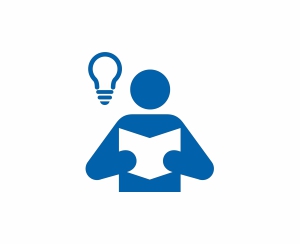All of us know that the key difference between self-publishing and traditional publishing is that one owns all the rights of the book when it is self-published while in traditional publishing, the rights remain with the publishing house and the writer gets a royalty.
Naturally, there are certain pros and cons of each publishing method, and depending on what you are looking for, you can decide which method to opt for. Your choice of publication also depends on the quality and genre of your book. Nowadays, a lot of writers are into the genre of fiction. As it is tough to get selected by a traditional publishing house for fiction, many authors are opting for self-publishing.
Pros of self-publishing:
• Control over visuals: You cannot control the layout, cover design, or any such thing when publishing traditionally. However, with self-publishing, you get the entire control over all the components of the publishing process. May it be title, blurb, or marketing strategy, you get a say in everything.
• Higher royalty: Where traditional publishing pays you hardly 10% of the profit as royalty, self-publishing allows you to keep 100% profit that your book makes. That is because the author already pays the publishing house for everything in advance. Hence, the income after sales belongs to the author.
• Quick publishing but no deadlines: Unlike traditional publishing, where you have to meet deadlines no matter what, self-publishing allows you to set your own deadlines and readjust them whenever needed. One more good part about self-publishing is that you don’t have to wait too long for the book to get published after it’s written. It gets published as soon as you upload it.
• Frequent paydays: Self-published authors are paid monthly based on the sales their book has achieved, whereas traditional publishing pays you twice a year.
• No rejection: The best part about self-publishing is that you have to face no rejection even if you are a new author.
Cons of self-publishing:
• Finding a reputed publishing house with affordable rates: Many self-publishing houses are famous, but they’re expensive. On the other side, some cheaper self-publishing agents are comparatively less popular. Depending on your budget, you’ll have to decide for yourself.
• Possibility of a loss: While traditional publishing houses are considered as a synonym of authenticity, self-publishing houses still have to face that stigma. Self-published authors are often doubted and ignored by a vast population, and hence it isn’t very easy to make yourself visible if you have opted for self-publishing.
• Marketing is huge trouble: Where traditional publishing enables a strong presence of your book in the market, self-publishing doesn’t give you that privilege. Your book has to make its way through thousands of other books to be visible on the internet.
• Difficult for inexperienced writers: You don’t get any advice or moral support from your publishing house. Editing, handling financial matters, building a brand, coordinating with other members involved in your book, etc. becomes extremely exhaustive, especially if you don’t have any experience.
These are some of self-publishing’s pros and cons, which you should keep in mind before deciding to >self-publish your fiction

